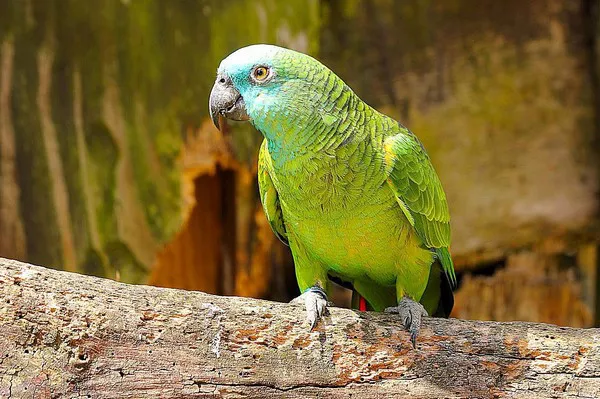Tortoises are fascinating creatures known for their slow and steady nature. They are herbivores, primarily feeding on a variety of plants. As a tortoise owner, you might wonder about the safety and suitability of different plants for your pet. One common question is whether tortoises can eat carnations. This article will explore the nutritional needs of tortoises, the characteristics of carnations, and whether they can safely be included in a tortoise’s diet.
Understanding Tortoise Diets
Herbivorous Nature
Most tortoises are herbivores, meaning they primarily consume plant material. Their diet mainly consists of leafy greens, fruits, and vegetables. The specific dietary requirements can vary depending on the species of tortoise.
Nutritional Needs
Tortoises require a balanced diet that includes:
Fiber: Essential for digestion and overall gut health.
Calcium: Important for shell and bone health.
Vitamins and Minerals: Necessary for various bodily functions.
Common Foods for Tortoises
Tortoises can eat a wide range of foods, including:
Leafy Greens: Such as kale, collard greens, and dandelion greens.
Vegetables: Carrots, bell peppers, and zucchini.
Fruits: Apples, strawberries, and melons (in moderation).
Foods to Avoid
Certain foods can be harmful to tortoises. These include:
High-oxalate Vegetables: Such as spinach and rhubarb, which can inhibit calcium absorption.
Citrus Fruits: These can upset a tortoise’s stomach.
Processed Foods: Human food is often unsuitable for tortoises.
The Characteristics of Carnations
What Are Carnations?
Carnations, scientifically known as Dianthus caryophyllus, are popular flowering plants known for their colorful blooms and pleasant fragrance. They are commonly used in gardens and floral arrangements.
Nutritional Content
Carnations belong to the family Caryophyllaceae and are primarily grown for ornamental purposes. The petals are edible and are sometimes used in culinary dishes for decoration. However, they are not typically regarded as a staple food source.
Potential Benefits
Vitamins: Carnations contain some vitamins, but they are not significant sources of essential nutrients for tortoises.
Aesthetic Appeal: While not a major nutritional component, the bright colors of carnations may attract tortoises.
Can Tortoises Eat Carnations?
Safety of Carnations for Tortoises
While the petals of carnations are not toxic to tortoises, there are several factors to consider:
Edibility: Tortoises can eat the petals of carnations, but it should not be a primary food source.
Pesticides and Chemicals: Carnations sold in stores may be treated with pesticides or other chemicals that can harm tortoises. Always ensure that any flowers offered are pesticide-free.
Moderation is Key
If you choose to feed your tortoise carnations, it should be done in moderation. They can be a small part of a varied diet, but the majority of their food should come from more nutritionally beneficial plants.
Species-Specific Considerations
Different tortoise species have varying dietary needs. Some species, such as sulcata tortoises, require a diet higher in fiber. Others, like the Mediterranean tortoises, have specific preferences for certain types of greens. Always consider the specific dietary requirements of your tortoise species.
Nutritional Analysis of Carnations
Macronutrients
Carnations are primarily made up of water and have minimal macronutrient content. They do not provide significant amounts of protein, fats, or carbohydrates that tortoises need.
Micronutrients
While carnations do contain some vitamins and minerals, they are not substantial enough to meet a tortoise’s nutritional needs. Other leafy greens and vegetables are far more beneficial.
Alternatives to Carnations
Safe Plant Options
Instead of relying on carnations, consider feeding your tortoise a variety of safer, more nutritious plants:
Dandelion Greens: Rich in calcium and vitamins.
Clover: A good source of fiber.
Plantain: Highly nutritious and safe for tortoises.
Basil: A flavorful herb that many tortoises enjoy.
Safe Flowers for Tortoises
There are other edible flowers that can be safely included in a tortoise’s diet:
Hibiscus: Colorful and nutritious.
Nasturtium: Both flowers and leaves are edible and provide beneficial nutrients.
Pansies: Safe and often enjoyed by tortoises.
Preparing Flowers for Tortoises
Washing and Cleaning
Always wash any flowers before offering them to your tortoise. This removes any dirt, pesticides, or chemicals that may be harmful.
Cutting and Serving
You can cut the flowers into smaller pieces to make them easier for your tortoise to eat. This can encourage them to try new foods.
Mixing with Other Foods
Consider mixing small amounts of edible flowers with your tortoise’s regular diet. This can enhance their food visually and encourage more varied eating habits.
Observing Your Tortoise
Behavioral Changes
When introducing any new food, including carnations, monitor your tortoise for any changes in behavior. If they show signs of distress or refuse to eat, discontinue offering that food.
Digestive Health
Tortoises can be sensitive to dietary changes. Ensure that any new additions to their diet do not cause digestive upset. Signs of digestive issues include bloating, lethargy, or lack of appetite.
Hydration
Ensure your tortoise has access to clean, fresh water at all times. Hydration is essential for overall health and can help with digestion, especially when introducing new foods.
Conclusion
While tortoises can eat the petals of carnations, they should not be a significant part of their diet. Instead, focus on providing a variety of nutritious greens, vegetables, and fruits that meet their dietary needs. Carnations can be offered in moderation, ensuring they are free of pesticides and chemicals.
Always prioritize the health and well-being of your tortoise by understanding its specific dietary requirements. By providing a balanced diet, you can help ensure a long and healthy life for your pet tortoise. Remember to monitor their health and behavior as you introduce any new foods into their diet. With proper care and attention, your tortoise can thrive and enjoy a diverse range of safe and nutritious foods.
Related Topics:






















